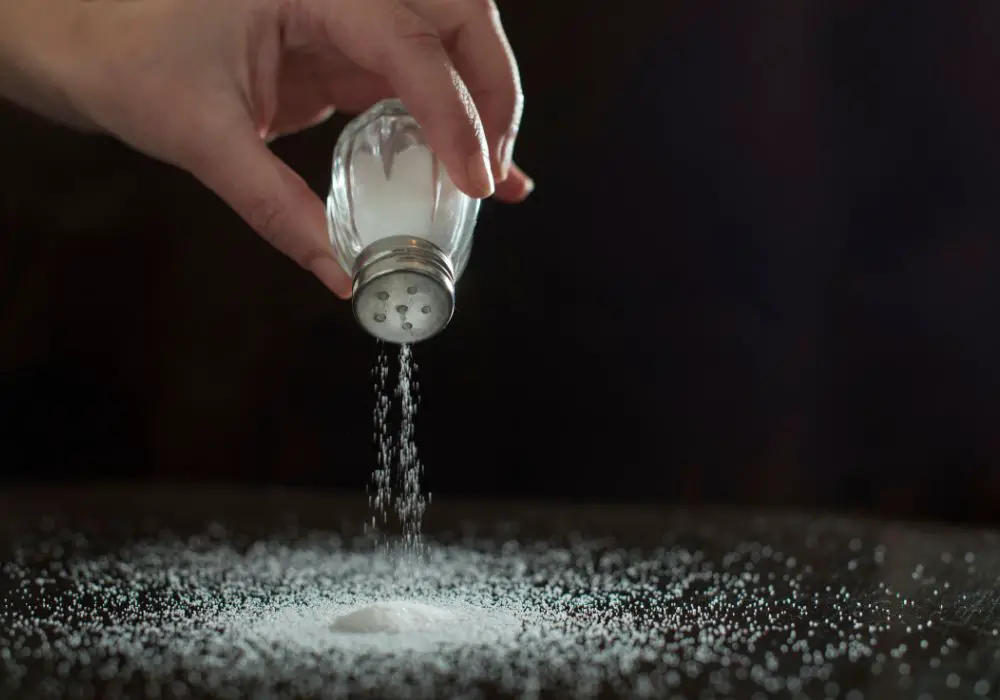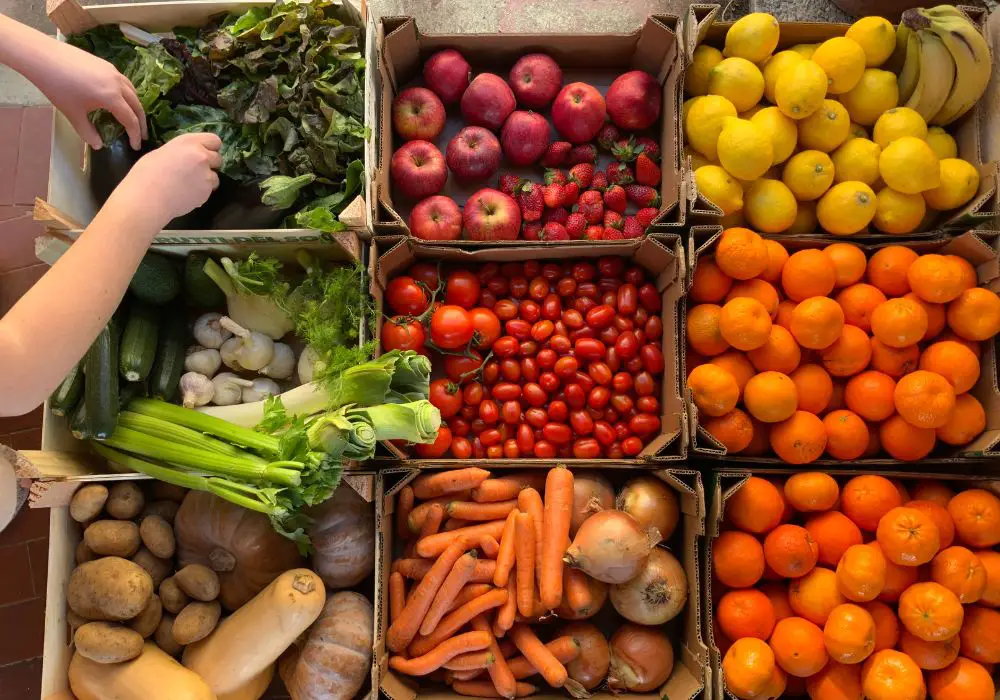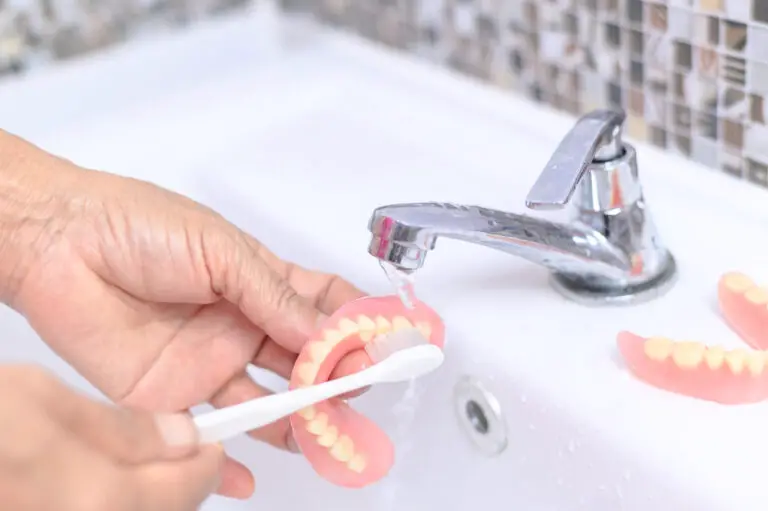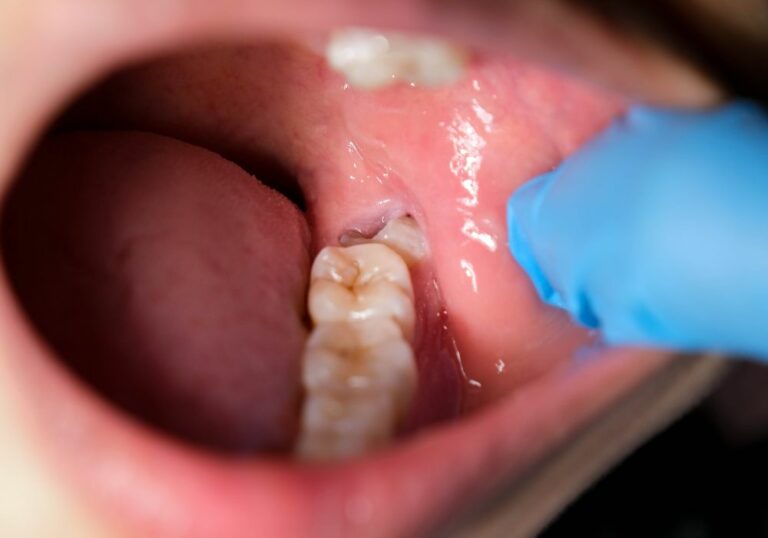Since childhood, we’ve always been trained to remember that eating candies, desserts, and all kinds of sugar is a surefire way to develop cavities. Dentists always say that sugar destroys your enamel, so it should be eaten in moderation if you want happy, healthy teeth.
But what about salt? Is it just as bad for your teeth and gums? What effect does eating too much sodium have on the teeth?
Today, we’ll tell you some of the ways sodium affects your teeth. We’ll also be sharing our most recommended foods to keep your teeth and overall oral health in tip-top condition. Keep scrolling to find out more!
Does Sodium Damage Tooth Enamel Like Sugar Does?

High-sodium diets often get a bad rap in the medical world because of the many health issues they can cause, including heart disease, high blood pressure, and stroke. But does salt also have a negative impact on dental health?
The good news is that salt itself doesn’t actually cause any damage to your teeth. In fact, salt is a great tool for maintaining oral health. Salt water rinses are popular for healing cold sores and injection sites in the mouth. It’s also amazing for soothing a sore throat and preventing gingivitis.
However, salt is present in many foods with carbohydrates. Just think of potato chips, pizza, pasta, French fries, burgers, and any other savory, processed foods you can think of.
So, why is that bad? Well, carbohydrates—along with sugar—are the main culprits of cavities and tooth decay. The starches from carbohydrates cling to your teeth and interact with the bacteria in your mouth to produce acid. This acid is what eventually damages and breaks down your teeth.
While salt is completely fine for your teeth, the foods that we always eat it with are not. Eating your favorite, carb-heavy, salty snacks can increase your risk of developing cavities in the future.
Sodium Can Weaken the Strength of Your Teeth
While carb-heavy foods with high salt content can cause cavities in your teeth from the outside, eating too much salt can actually weaken the strength of your teeth from the inside.
Teeth rely on calcium to stay strong and healthy, the same way bones do. However, a high sodium intake can force your kidneys to flush out a large amount of calcium from your body through urine, thereby making your teeth and bones a little less sturdy and structured.
If you get rid of too much calcium in your body because of your high intake of salty food, it’s not just bad for your teeth. It can also cause conditions like osteoporosis that weaken bones all around your body. These severe effects on your teeth and bones make it wise to eat less salt in your diet.
Sodium Causes Dry Mouth, Which Leads to Gum Disease
Salty food is known to cause dehydration. It absorbs water, which can result in dry mouth syndrome. When your mouth is extremely dry, it’s a sign that your salivary glands can’t produce enough saliva to clean your mouth and neutralize the toxins and acids in it.
If your saliva doesn’t protect your mouth from toxins and acids, your tooth enamel can start to erode, increasing the risk of cavities.
The lack of hydration in your mouth can also lead to gum disease and other infections in the gums. This is because bacteria may start to grow and breed in your mouth when it’s not protected by saliva.
When not addressed properly, gum disease can lead to painful swelling and bleeding in the gums, bad breath, sensitive teeth, and many more. It’s definitely not worth the extra salt you added to your diet.
See what dental experts have to say about dry mouth and how it causes gum disease by watching this quick clip:
Eat Sodium in Moderation to Keep Teeth and Gums Healthy

There are plenty of reasons to lower your salt intake. It decreases the risk of cardiovascular disease and heart attacks. When it comes to your teeth, salty food with lots of carbs and simple sugars should be eaten in moderation as well to prevent tooth decay and cavities.
So, if you should avoid salt, carbohydrates, and sugar to protect your teeth, what foods can you eat? Here are a few kinds of food we recommend if you want to keep your teeth and gums healthy, clean, and strong.
1. Calcium-rich foods
First on our list is calcium-rich foods. Calcium is a mineral that is integral to the strength and structure not just of teeth, but the jawbone and dental bone that keep them in place. It’s important to have a high intake of calcium if you’re serious about keeping your teeth solid and sturdy.
Calcium adds a protective layer around the enamel of your teeth. This extra layer shields your precious teeth from being eroded by oral bacteria and acid. In short, calcium doesn’t just strengthen your teeth—it keeps cavities and tooth decay away as well.
Some calcium-rich food and drink include milk, dairy, cheese, yogurt, tofu, and leafy green vegetables.
2. Food with high phosphorus content
Next up, we have food that is rich in phosphorus. Together with calcium, phosphorus helps maintain the strength of your teeth. It helps strengthen the tooth enamel, creating a stronger barrier for your teeth to fight off acids, sugars, and starches that can cause cavities.
Phosphorus is kind of like a sidekick to calcium, at least as far as dental benefits go. Phosphorus helps balance the levels of calcium in the human body, allowing you to retain as much of it as you need to keep your teeth and bones strong.
Foods that are rich in phosphorus include meats like beef, chicken, and turkey, as well as fish like tuna and salmon. You’ll also find it in pumpkin seeds, almonds, lentils, kidney beans, quinoa, brown rice, and dairy products.
3. Fruits and vegetables

Not only are fruits and vegetables good for your overall health, but they’re a terrific alternative to junk food if you want to keep your teeth healthy, too.
Fruits and veggies have high water content, which means your mouth will never feel dry if you eat enough of them. These food groups help stimulate healthy saliva production, which means your mouth can clean itself and get rid of bacteria that can cause gum disease and bad breath.
Another awesome thing about fruits and vegetables is that many of them are rich in fiber, giving them a crunchy texture. This helps clean your teeth by scrubbing away food particles. As a result, you won’t have that much plaque stuck in your mouth when you munch on fruits and veggies.
Lastly, fruit is a natural source of sugar that isn’t as bad as refined sugar for your teeth. Try to eat more fruit as a substitute for your usual dessert heavy in carbs and sugar. That way, you can still get your sweet fix without worrying too much about enamel erosion.
4. Sugar-free desserts
Of course, if you’re serious about keeping cavities and tooth decay at bay, avoid sugary treats. That means trading in your cakes, candies, cereals, and other sweet foods for sugar-free options that make use of healthy, alternative sweeteners that won’t damage your teeth, such as xylitol.
You can find sugar-free treats and desserts in health food stores and specialty bakeries.
5. Food rich in omega fatty acids
Omega fatty acids are known for their anti-inflammatory properties that are great for the skin, joints, and other parts of the human body. But did you know that these healthy fats can also improve gum health?
Inflammation, swelling, and bleeding are among the most common symptoms of gum disease. But if you have a healthy intake of omega fatty acids, it can strengthen the soft tissue in your gums, allowing them to defend themselves better against periodontal disease.
The best sources of omega fatty acids include fatty fish like herring, salmon, and mackerel. You can also get them from chia seeds, walnuts, Brussels sprouts, eggs, and edamame. If you want to really up your omega fatty acid game, try taking daily fish oil supplements.
Conclusion
While salt itself isn’t particularly harmful to your teeth and gums, it can still lead to dental and oral health issues in the long run. Eating salty foods with starches can lead to tooth decay, and sodium has been found to weaken teeth and lead to dry mouth—a top cause of gum disease.
So, even if you can argue that salt is fine for your teeth, it’s still a wise idea to eat it in moderation. Fill your diet with other foods that can strengthen your teeth and gums instead, such as fruits, vegetables, and foods rich in calcium, phosphorus, and omega fatty acids.
Hopefully, this guide has taught you a thing or two about the real effects of sodium on your teeth and inspires you to eat less of it for your oral health. That way, you can keep flexing your strong, healthy pearly whites without the guilt of eating food that is bad for them.







